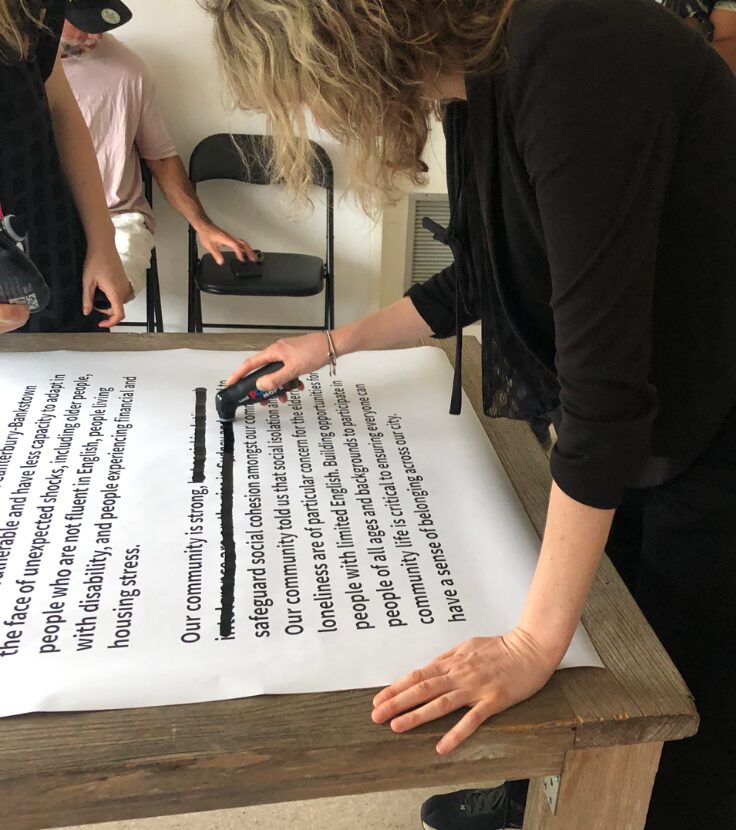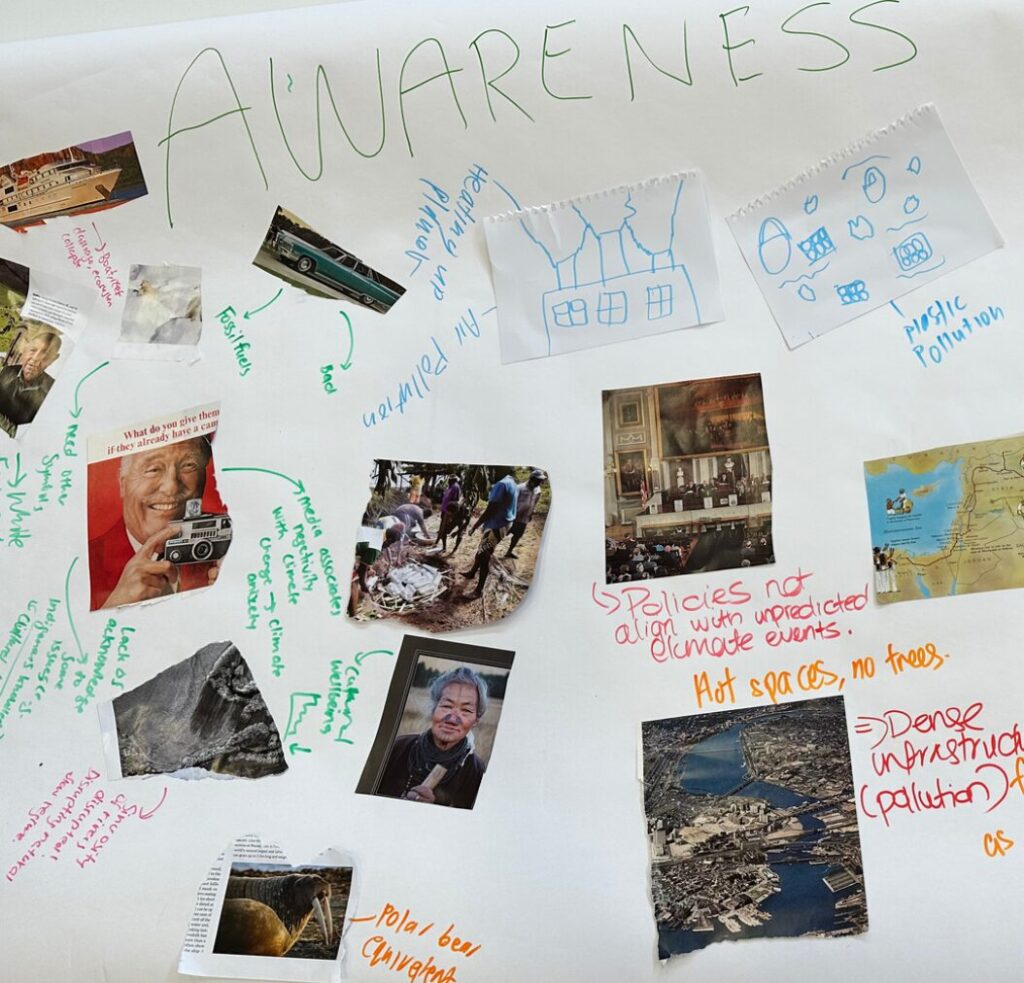New innovative art-based toolkit for climate resilience

A toolkit for fostering climate resilience
- Level: Introductory
- Time commitment: 1 hour per activity (total of 5)
- Learning product: toolkit for participatory activities
- Sector: multi-sector
- Language: English
- Certificate available: not available
This weADAPT article is an abridged version of the original toolkit which can be downloaded from the right-hand column. Please access the original text for more detail on activities and full references. This toolkit is licensed under Creative Commons (Climate Resilience Toolkit © 2024 by Meg Parsons and Susanne Pratt is licensed under CC BY-NC-SA 4.0).
Introduction
In an era increasingly defined by the urgent challenge of climate change, the quest for innovative and effective ways to foster resilience, hope, and empowerment has never been more critical. Traditional narratives and scientific data, while essential, often contribute to a sense of overwhelming anxiety, particularly among younger generations. Recognising this, a groundbreaking toolkit has emerged, designed to offer a fresh perspective on climate change communication and action: the Art-Based Climate Resilience Toolkit.
As we navigate the complexities of the climate crisis, the Art-Based Climate Resilience Toolkit invites us to embrace a new narrative—one rooted in hope, empowerment, and collective action. It reminds us of the transformative potential of art to not only illuminate the path towards climate resilience but to inspire a more resilient, equitable, and sustainable future for all.
Institutional background
This pioneering resource is born out of extensive research and collaborative efforts involving artists, educators, and climate scientists from Sydney, Australia, and Auckland, Aotearoa New Zealand, with assistance from researchers at the University of Bristol, UK, and Lund University, Sweden. It is designed to bridge the gap between the abstract world of scientific data and the tangible realities of individual and community lives, utilising the transformative power of art to foster a deeper, more empathetic understanding of the climate crisis as well as adaptation, mitigation, and transformation efforts.
This toolkit represents a new way to approach climate change communication and climate adaptation by allowing people to think about and imagine climate resilience, climate justice, and adaptation using different medium. These tools are just the start of the team’s efforts to leverage the universal language of art to open up new avenues for understanding, engaging with and enacting climate justice, resilience and adaptation. The tools are designed to be used and adapted to fit local contexts and different communities.
The power of art in climate communication
Art, with its diverse forms and expressive potential, has the unique ability to convey complex messages in an accessible and emotionally resonant manner. The toolkit harnesses visual arts, theatre, and participatory activities to inspire individuals and communities towards envisioning and working for a sustainable future. By focusing on activities that address climate anxiety and empower participants, it paves the way for a shift from passive concern to active engagement in climate resilience efforts.
Toolkit activities
The toolkit is structured around a series of activities, each designed to engage people with different concepts and actions linked to climate change adaptation in ways that emphasise hope, empowerment, and collective action. Here are some of the activities included:
- Climate Justice Tree: A collaborative activity that helps participants understand the interconnectedness of climate justice issues, from the causes and impacts of climate change to envisaged solutions.
- Adaptation Paths: A Climate Change Journey: This group art project encourages participants to visualise their journey of climate adaptation, from awareness to action.
- United We Stand: Clay Figurines of Community Resilience: An activity that uses clay figurines to represent the roles individuals play in building climate-resilient communities.
- Theatre of the Resilient: Inspired by the Theatre of the Oppressed, this activity explores power dynamics and climate resilience through interactive theatre and employing AI technologies to generate scripts.
- Found Poetry: An innovative approach to engage with the language of climate reports, transforming them into personalised poetic expressions.

Photograph of one of the adaption pathway visualisations created during a workshop. Credit: Olivia Corbett
Who would find this useful?
What sets this toolkit apart is its adaptability and accessibility and suitability for all. It is available for download and can be adapted by anyone interested in exploring the intersection of art and climate action. Whether you’re an educator, community leader, or simply someone passionate about climate resilience, this toolkit offers a valuable resource for facilitating meaningful conversations and actions on climate change.
Learning outcomes
Each activity is designed to serve as a bridge, connecting individual actions to community resilience, scientific understanding to emotional engagement, and current challenges to future solutions.
Suggested citation
Parson, M and Pratt, S. Climate Resilience Toolkit: Arts-based activities for changing climates, February 2024.
Acknowledgements
We would like to thank the Worldwide Universities Network (WUN) for supporting the project Renegotiating Power to Enhance Resilience to Climate Change, through which this toolkit and related research was made possible (Grant number: UoA 3726084). Thank you to Petra Tschakert (Curtin University) for developing and leading the WUN project and Ed Atkins (University of Bristol), and Karen Steen (Lund University) for assisting in the conceptualisation of the ideas for the tools. We are appreciative of the various researchers, educators and artists who have offered advice and feedback in developing this toolkit. In particular, thank you to artists Gabby O’Connor and Claire Marshall for their involvement in trialling arts-based approaches with us at Transformations Conference 2023 (Sydney, Australia), and thank you to the conference workshop participants for their feedback. Thanks also to Sky Hugman (Western Sydney University) and the poet Ammar Randhawa, who collaborated on trialling different found poetry approaches supported by Bankstown Arts Centre during a residency at Incubate Studios. their feedback. Thanks also to Sky Hugman (Western Sydney University) and the poet Ammar Randhawa, who collaborated on trialling different found poetry approaches supported by Bankstown Arts Centre during a residency at Incubate Studios.

Comments
There is no content